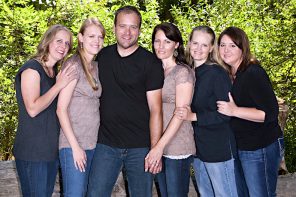The Pew Forum’s recent study, “Religion in China on the Eve of the 2008 Beijing Olympics” begins with a reminder that religion remains a factor even in one of the world’s most secular nations.
“On Aug. 8, 2008—the right day of the eight month of the year ’08—at exactly 08:08:08 p.m,. the summer Olympics are scheduled to begin in Beijing. The day and hour for the start of the Olympics was chosen for its good fortune—a widely held belief in Confucianism and Chinese folk religions.”
By American standards (which are unusually high among developed nations), religion is not a significant factor among the Chinese: only 31% deem it very or somewhat important in their lives. However, given six decades of a repressive policy, those numbers are, according to Pew, surprisingly high. Moreover, they represent a large number of people, “nearly equal the estimated number of religiously affiliated adults in the United States”
Accordingly, the 1-plus % of the Chinese population that identifies itself as Muslim equals some 20.3 million people—a population almost as large as Saudi Arabia’s. (More to the point, as one of China’s ethnic minorities, Muslims are not bound to the one-child per family policy.)
Notwithstanding the fervid prayers of some Olympic contestants, religion probably won’t be a major story during the Summer Games. But the Pew Forum’s findings are worth remembering: A growing number of urban, educated, 20-something Chinese men and women are increasingly interested in the topic.
More on religion: a story last week from the Columbus Dispatch reported that United Methodist congregations “could share pastors and combine churches with a Lutheran denomination under a partnership approved by the denomination last week.” (The Evangelical Lutheran Church in America will need to okay the agreement at its 2009 conference.)
The reasons for the partnership, assisting small and struggling congregations, is obvious. But Methodists and Lutherans, despite their shared Protestant identification, hold very different notions of authority, polity, ecclesiology, and theology. More than 20 years ago, sociologist Robert Wuthnow’s classic The Restructuring of American Religion posited that education, mobility, and socioeconomic factors were trumping theological differences among American Protestant denominations. Some took Wuthnow’s argument as proof text for the culture war, but it also explains the softening of theological boundaries among the mainline and the triumph of pragmatics (shrinking budgets) over dogmatics.
Brooke Adams, the polygamy correspondent for the Salt Lake Tribune, was on On the Media this past week to discuss coverage of the Fundamentalist Church of Jesus Christ of Latter Day Saints. Noting that some media outlets give less than a full picture of the controversial sect, she said some members of the group attend college, use the Internet and empower women.
“The problem is that we hear so little from this community over the years, and we hear mostly their characterizations put out by critics or people who’ve left the community,” she told interviewer Bob Garfield. “And what you can see when you’re there at the ranch is that these women were pretty outspoken about their making a choice to live this way.”
Adams is right: people should be able to speak for themselves and there are usually more than two sides to every story. She is correct to remind us that we rarely hear the perspectives of women from the group. That said, any social arrangement that permits adults to have sexual relations with children is wrong, and I wish Bob Garfield had asked her what community members said about that.




